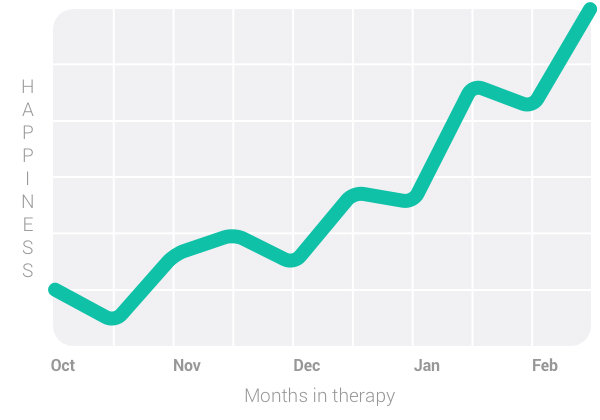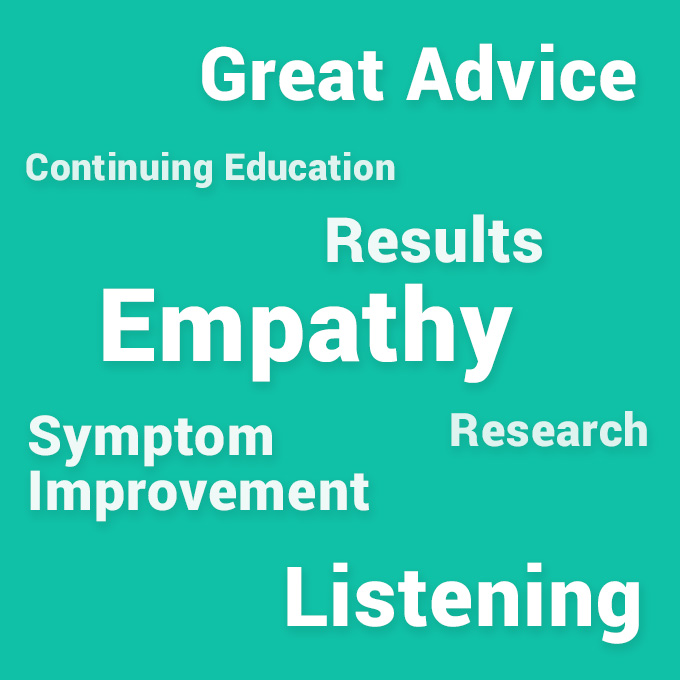What makes a good therapist goes beyond the ability to make a client feel a little better. Because most forms of psychotherapy are effective, any competent and licensed therapist can make a small difference.
A good therapist, on the other hand, can make a huge impact in a client’s life. He or she can teach clients new cognitive and emotional skills, help them overcome trauma, guide them toward better relationships and transform them into better versions of themselves.
As a client it can be easy to confuse how skilled a therapist is with how well you match with them. Still, there are some objective signs of a good therapist that apply whether you like the person or not. Keep reading to learn what they are so you can quickly decide whether the therapist you are working with is someone who can make a big positive difference in your life.
To make the article comprehensive, we broke the signs down based on how you are interacting with your therapist. Most signs apply to any therapeutic interaction, but there are some that only apply to online therapy or in-person therapy.
Signs That Make a Good Therapist No Matter How You Communicate With Them
1. Producing Results

If you know what you want from therapy and are willing to work for it, a good therapist should be able to help you achieve those results.
2. Their Feedback is Both Practical and Emotional
You want your therapist to show they care about what you’re saying. Sometimes this is as simple as providing emotional feedback via facial expressions or statements such as, “I think you’re much stronger than you give yourself credit for.”
This alone isn’t enough to help, though. You need practical feedback, including suggestions for new ways of thinking, assessing relationships and improving mental health outside of sessions.
3. Trying to be Empathetic
Therapists should constantly be trying to place themselves in the client’s shoes. Trying to be empathetic will deepen the therapeutic bond that leads to better results.
4. The Therapist Is Trying to Understand What You Want
If you enter therapy without knowing exactly what you want, it is the therapist’s job to help you figure that out. He or she can do this by asking questions at appropriate times.
5. Doing a Good Job Listening to You
Any therapist can listen to part of what you’re saying and sort of remember it for the next chat. A good therapist will make the effort to understand everything you are saying and be able to pick it up without asking you to refresh them so much.
This sign applies to all forms of therapy, but less so for text therapy. With text therapy, the therapist can simply look at what you typed into the chat room. A good therapist will take advantage of this ability.
6. You Can Understand What They Are Saying
Therapists should be able to communicate their suggestions concisely and clearly. Whether it is a written message during text therapy or a verbal communication, you should be able to understand what they are saying.
7. Showing Interest in What You Are Saying and Feeling
Listening isn’t enough. The therapist should have questions and responses that show interest in your thoughts and emotions.
8. If You Have Symptoms, The Therapist Should Be Able to Explain Them
Skilled therapists can analyze symptoms and eventually offer clients an explanation of what factors might be contributing to them. This will allow you to make more progress, explore issues related to symptoms and ultimately reduce them.
9. Checking in on Progress
You might not remember to evaluate how you are doing, so it’s the therapist’s responsibility to check in occasionally. This will help you make more progress and shift strategies when necessary.
10. Making You Believe You Can Improve Your Life

If you are dealing with severe depression, anxiety or trauma, you might have lost hope for improving your life. A good therapist can help you restore this hope.
11. Keeping Up with Research and New Evidence-Based Treatments
A good therapist will only use techniques and strategies that are up-to-date and have evidence to back their efficacy. You’re not paying for alternative medicine that may or may not work. You signed up for legitimate psychotherapy that is 100% effective!
Feel free to ask your therapist about the efficacy of his or her techniques. If the therapist is good, there will be nothing to hide.
12. Continuing Their Training and Education

Many therapists read literature on psychotherapy, network with other therapists, attend career conferences, take courses or enroll in training programs to ensure their skills stay sharp. If you are interested, this is another issue you can politely ask your therapist about.
Signs That Only Apply to In-Person and Video or Audio-Based Online Therapy
13. The therapist should use a private space to protect your privacy and provide audio that is free of background noise.
14. The therapist should use eye contact and body language to convey both interest and empathy.
Signs That Only Apply to Texting Therapy
15. Replying as frequently as possible
16. Offering substantive messages
17. Trying to convey tone via text
If you work hard in therapy, a good therapist should be able to produce results over time. These signs show the therapist is trying his or her best to make your mental health better.
Talkspace articles are written by experienced mental health-wellness contributors; they are grounded in scientific research and evidence-based practices. Articles are extensively reviewed by our team of clinical experts (therapists and psychiatrists of various specialties) to ensure content is accurate and on par with current industry standards.
Our goal at Talkspace is to provide the most up-to-date, valuable, and objective information on mental health-related topics in order to help readers make informed decisions.
Articles contain trusted third-party sources that are either directly linked to in the text or listed at the bottom to take readers directly to the source.




